US election 2020: The Democratic White House race - in five charts
- Published
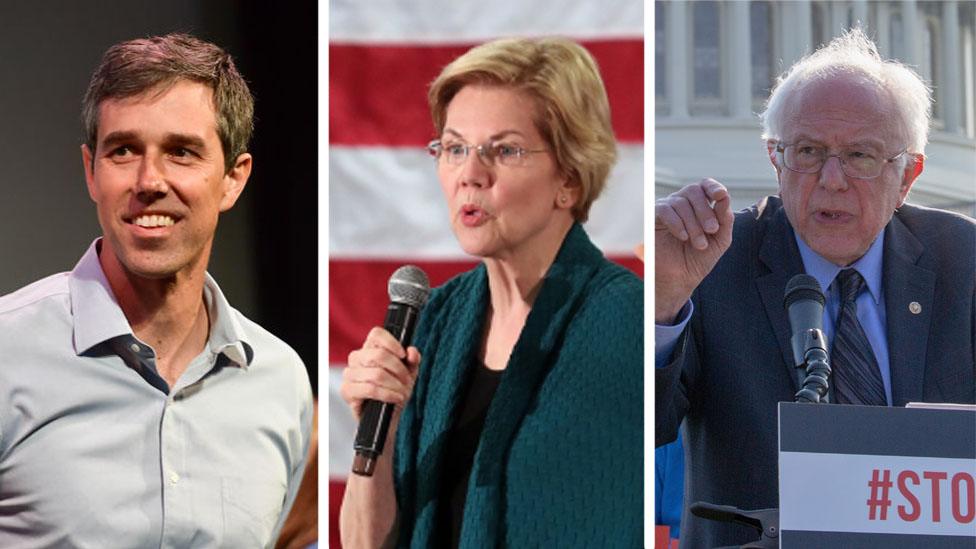
Beto O'Rourke, Elizabeth Warren and Bernie Sanders
With Joe Biden's entry into the presidential race, the Democratic field is essentially set. He may be the new frontrunner, raising $6.3m in the first 24 hours of his campaign, but he still has some catching up do in the money stakes. So who's raising the most cash?
At the end of March the candidates reached a key early benchmark - the end of the first quarter of 2019 fund-raising.
After months of talk, there are now some tangible figures by which to judge how the field Biden faces is shaping up.
Dollars raised are no firm indication of eventual success, of course. Just ask would-be Presidents Jeb Bush and Hillary Clinton - the early leaders of the 2016 money race. It is, however, a useful early measure of interest in, and enthusiasm for, presidential candidacy.
And the absence of money can bring even the most compelling candidate's White House dreams to a grinding halt.
There's a reason Biden's first event after releasing his announcement video was a fund-raising event in Pennsylvania on Thursday night.
Here's a look at some of the biggest takeaways from the January to March figures, as reported to the Federal Election Commission.

Sanders flexes his muscles
Bernie Sanders was expected to post a strong showing in the first quarter fund-raising, and he did. Just because he met expectations, however, shouldn't take away from the significance of his accomplishment.
Where most other candidates posted million-dollar numbers in the single digits, the Vermont senator raised $18.2m (£14m).
Only California Senator Kamala Harris, who benefits from a deep California fund-raising base, also broke the $10m mark.
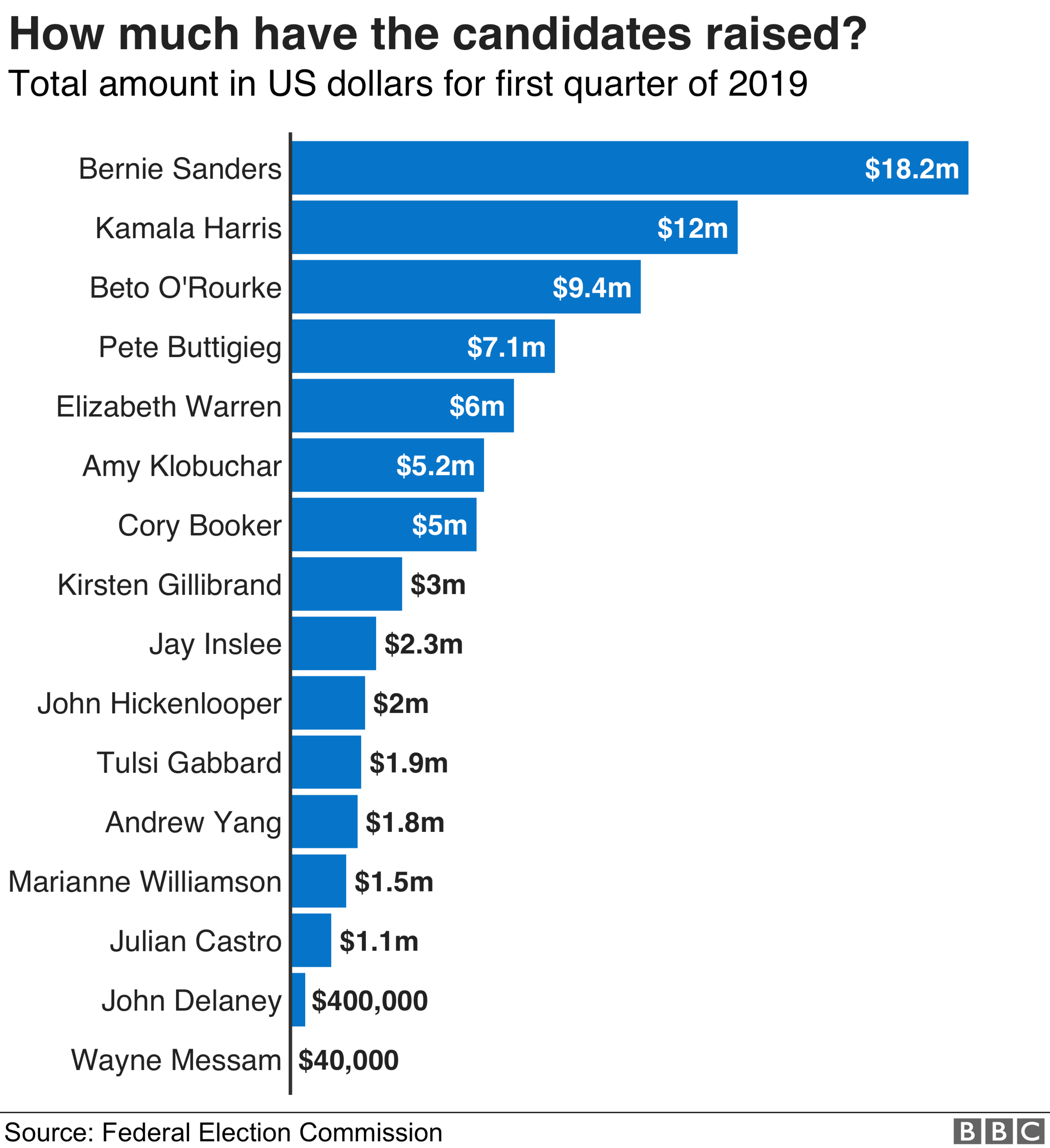

Given her national star power, Elizabeth Warren's $6m quarterly take may be cause for concern. She is probably most directly in competition with Sanders for the hearts and minds of progressive primary voters, and she trails him in fund-raising by a significant margin.
Her campaign is far from scraping the bottom, however, as she transferred $10.4m from her Senate campaign coffers to her presidential account, giving her some financial breathing room in the months ahead.
That's a tactic also used by the other senators in the race - including Kirsten Gillibrand ($9.6m), Amy Klobuchar ($3.5m), Cory Booker($2.7m) and Sanders himself ($2.5m). Having years in high office to fill political bank accounts has some definite advantages.
(If you want to see what real alarm bells look like, note that former Obama Cabinet secretary Julian Castro ($1.1m) was out-raised by both author Marianne Williamson and businessman Andrew Yang.)

A Buttigieg bump
Apart from Sanders' much-predicted success, one of the most eye-catching results of the first quarter fund-raising disclosures for Democrats was the early success of Pete Buttigieg.
Just over a month ago, the mayor of South Bend, Indiana, was a nearly complete unknown. After a strong performance in a nationally televised town hall and a wave of positive press, however, he saw a surge in presidential preference polls.
That buzz translated into campaign donations as well, to the tune of $7.1m - good for fourth place and besting more established, better-known candidates like senators Amy Klobuchar, Cory Booker and Kirsten Gillibrand.
Buttigieg has been operating on a shoestring budget so far, with only $700,000 spent of his fundraising haul.
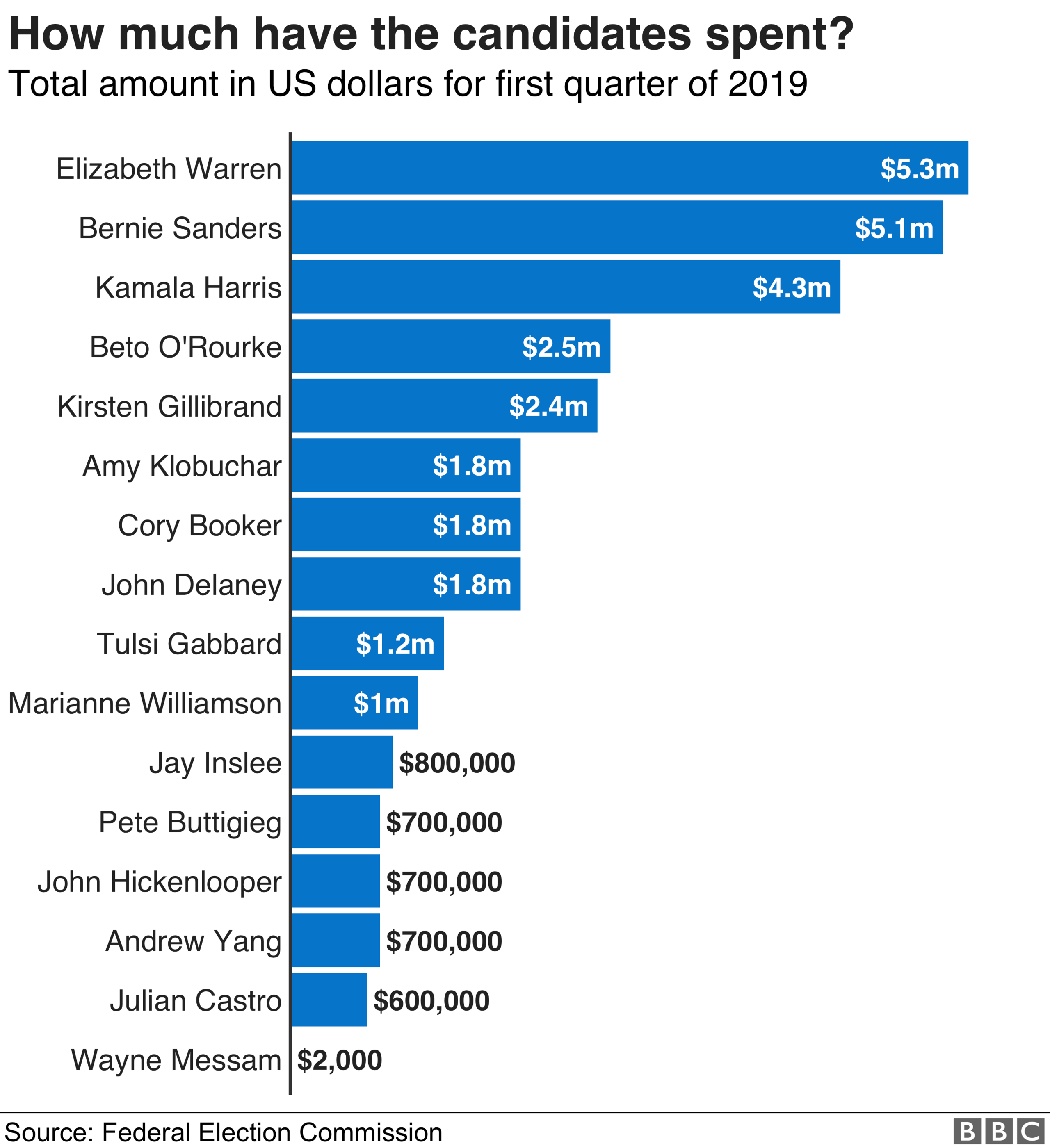

That puts him more in line with the Andrew Yangs and John Hickenloopers of the field, rather than Elizabeth Warren ($5.3m), Bernie Sanders ($5m) and Kamala Harris ($4.3), who have been building out well-staffed campaigns capable of competing across a national playing field.
One of the big tests for Buttigieg in the coming days will be whether he can turn his polling and fundraising surge into a durable campaign organisation that is built to win.

An O'Rourke fade?
There may be some indications that Beto O'Rourke's early fund-raising prowess is flagging. He turned heads when his campaign announced he raised $6.1m in the first 24 hours of his campaign - topping the previous best mark set by Sanders (both now eclipsed by Biden).
In the two weeks since then, however, he only brought in an additional $3.3m. That's coincided with media coverage that has curdled a bit since his early splash launch.
As the Washington Post's Dave Weigel quipped, O'Rourke has gone from "new Bobby Kennedy" to "apologising guy who stands on tables" in the space of a month.


Maybe it's not quite that bad, but the former congressman who amassed record-breaking sums from a national fundraising base during his unsuccessful bid to unseat Texas Senator Ted Cruz will have to keep the money spigots flowing if he wants his campaign to live up to its early hype.
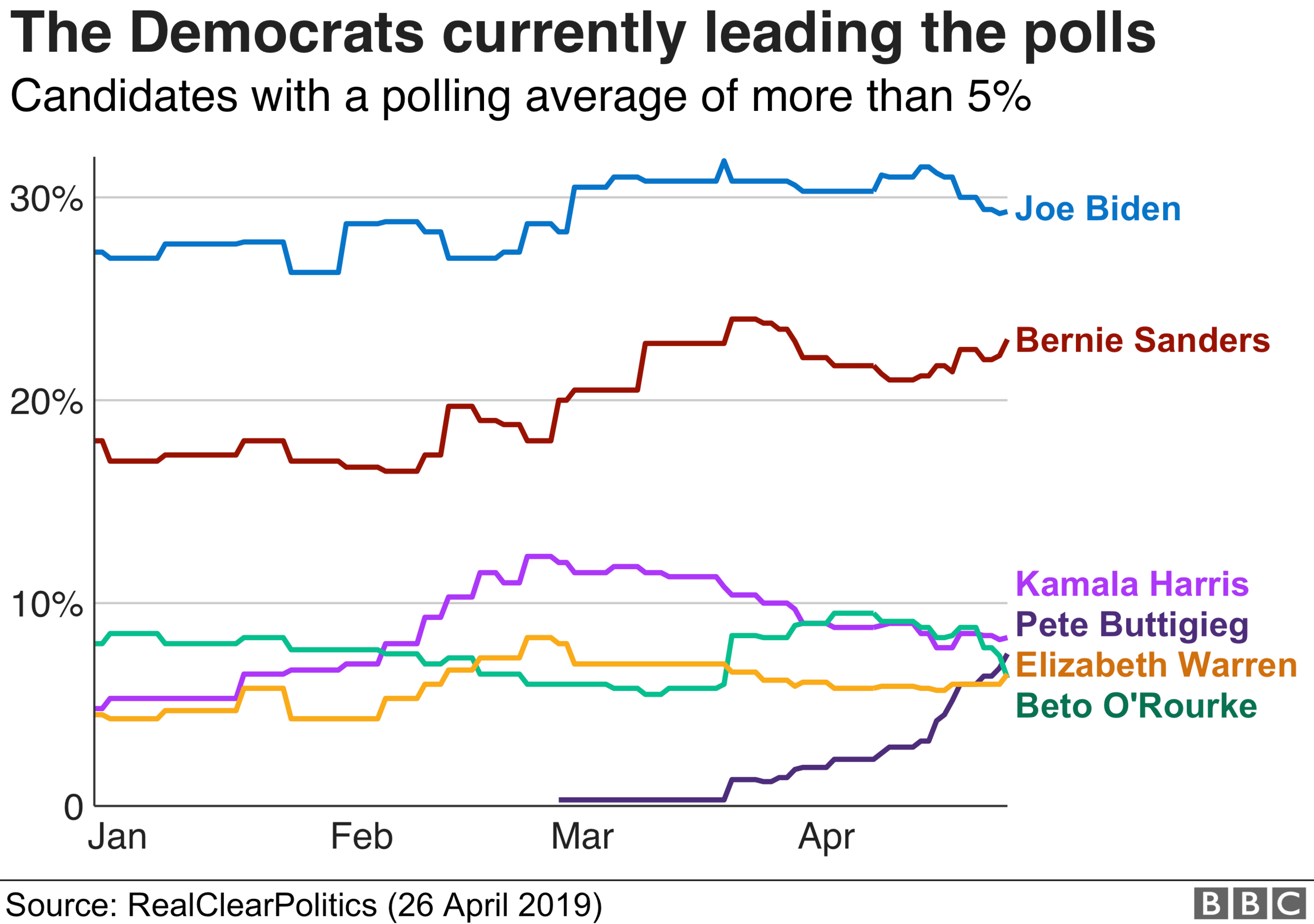

Small donors are big
One of the most significant changes in the way Democratic political campaigns have been funded in recent years is the importance of small-donor fundraising (contributions less than $200).
Thanks to the internet, many candidates have been able to tap into a torrent of contributions from across the country.
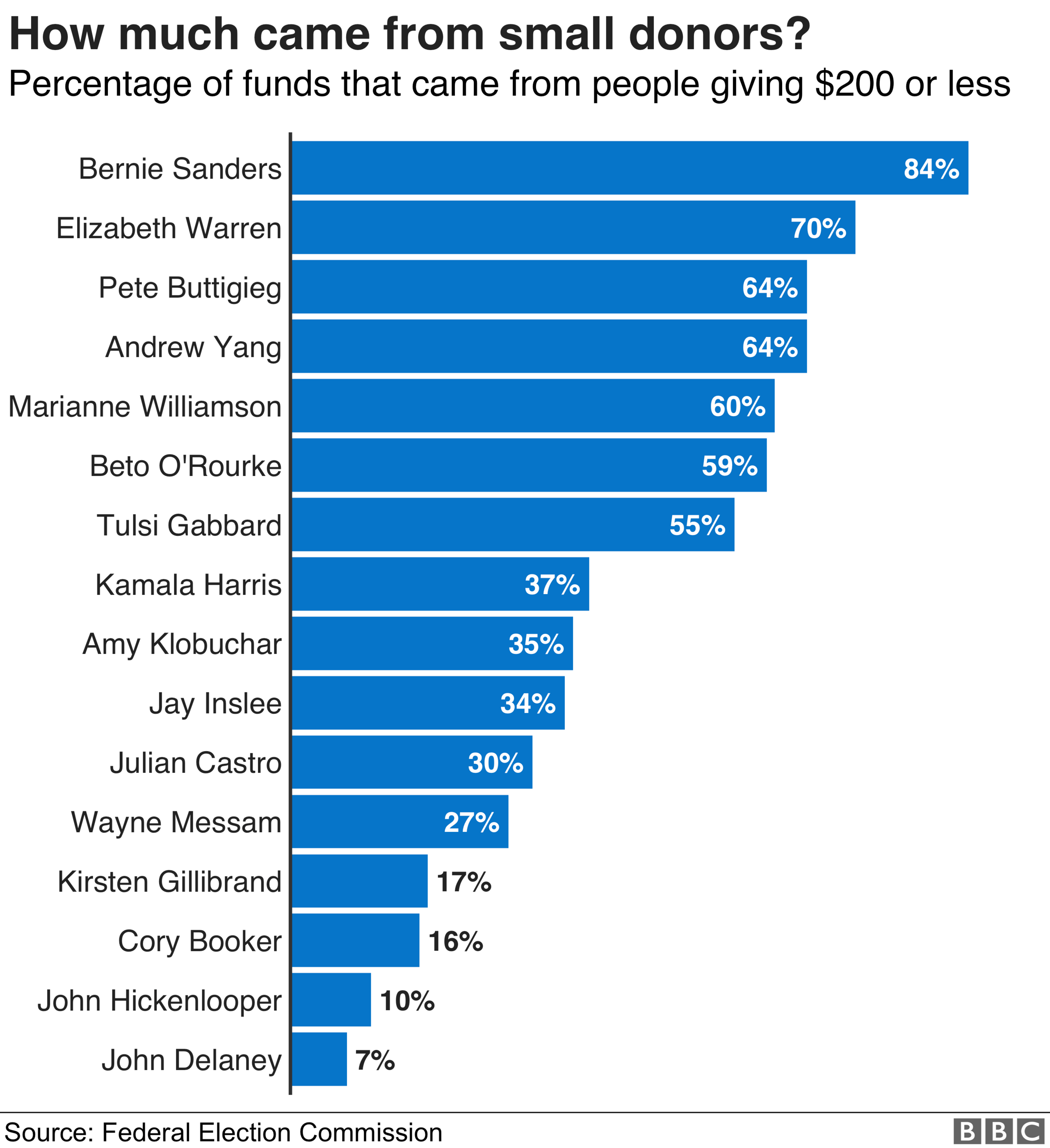

Political hopefuls who have a broad network of donors, including massive email lists, have the benefit of being able to cast the widest of nets.
If most contributions are coming in small-dollar amounts, there's a lot more room to go back for more cash before your supporters hit the $2,700 individual contribution limit for primary campaigns.
Building a large contributor base is particularly important this primary season because the Democratic National Committee has made having at least 65,000 donors, including 200 from at least 20 states, as one of the ways to qualify for what will be a very crowded primary debate stage this summer.
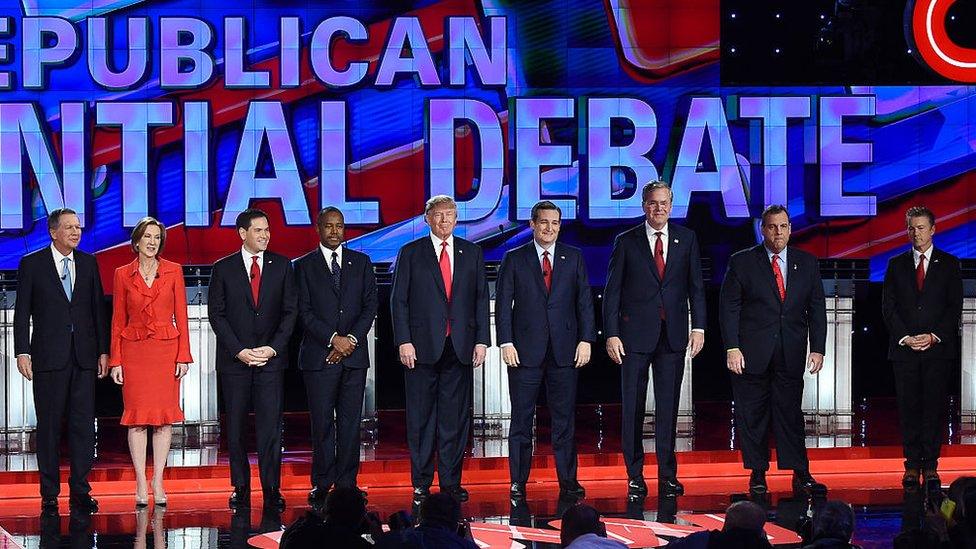
The Democrats appear set to have more candidates on debate stage than Republicans did in 2016
Bernie Sanders was the first to truly realise the potential of the internet-based grass-roots fundraising in 2016, pulling $228m over the course of his ultimately unsuccessful campaign, including $134m from small donations, external.
He's picked up this year where he left off, with 84% of his contributions coming from small-money donors.
Sanders wasn't the only candidate to demonstrate small-money potential, however.
Elizabeth Warren, who has forsaken the big-money fundraising circuit entirely, posted a 70% mark. Mayor Pete Buttigieg, the hot candidate of the moment, and businessman Andrew Yang, who has made a concerted effort to solicit donations as small as a dollar to help qualify for the Democratic debates, have both brought in 64% of their contributions this way.

Who will take on Trump in 2020?



The Trump juggernaut
While the Democratic field continues to grow, and the candidates scramble for their piece of the fundraising pie, Donald Trump is steadily building one of the most imposing financial war chests in presidential history.
Trump set up his re-election campaign infrastructure earlier than any president in US history and raised $30m in the first quarter of 2019, giving him a total of $40m cash on hand.
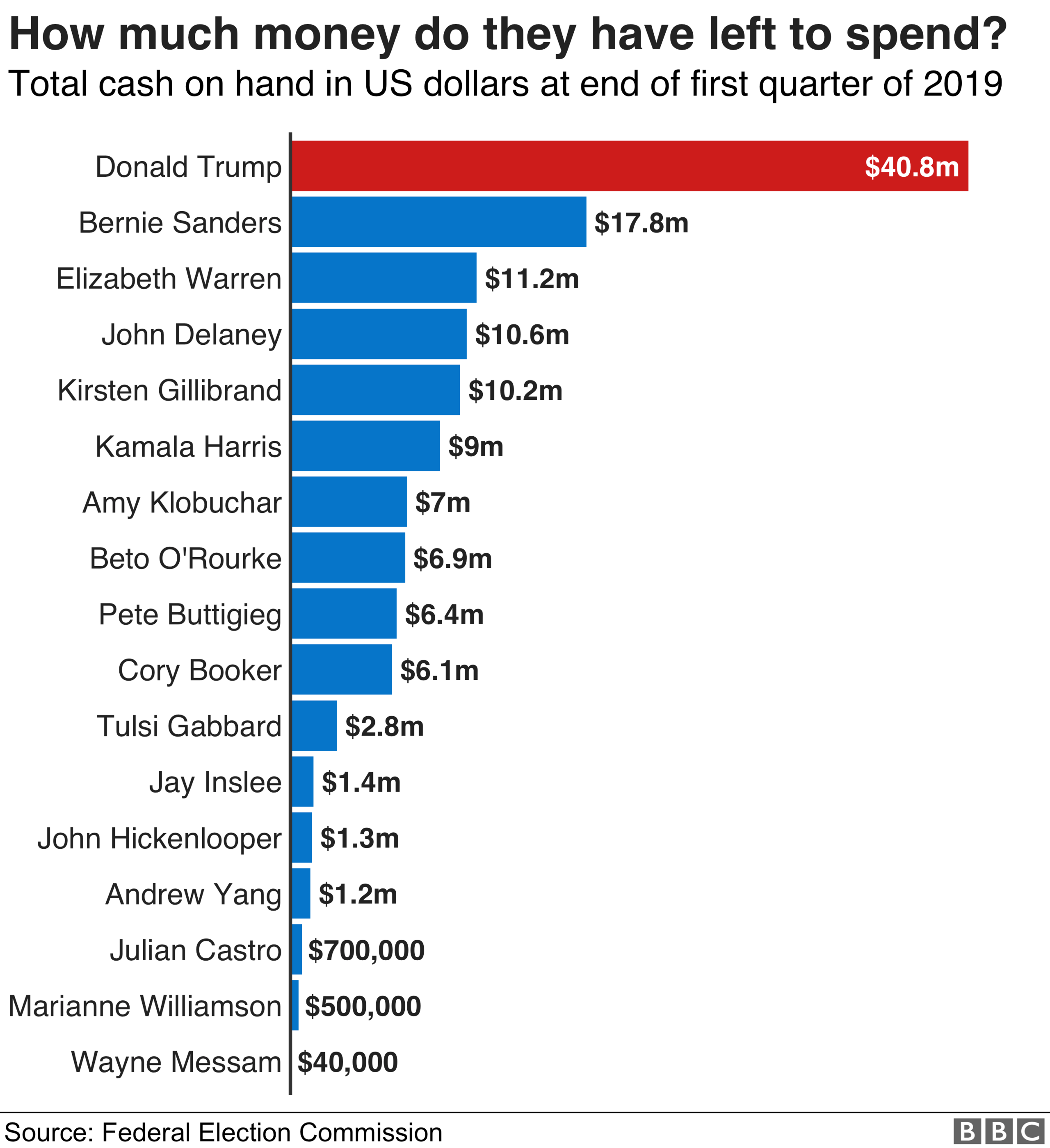

When Trump was first running for president, he mocked his Republican counterparts who spent their days amassing campaign contributions and said he'd pay for his own White House bid. In August 2015 he said former Florida Governor Jeb Bush, who was the biggest fundraiser in the Republican field at the time, was a "puppet" for his donors and would do whatever they want.
Times have changed, and now Trump is the reaping the financial benefits of being an incumbent president with only token opposition within his own party. At this point, the only candidate who is self-funding on any significant level is John Delaney, who has loaned his long-shot campaign $11.7m of the fortune he amassed as a financial-sector entrepreneur.
In 2012, then-President Barack Obama brought in $720m for his re-election campaign. Trump's people have a billion-dollar target for 2020 - and, as the general election draws closer, it's a mark he's likely to reach.

More from Anthony on each candidate
- Published2 April 2019
- Published3 April 2019
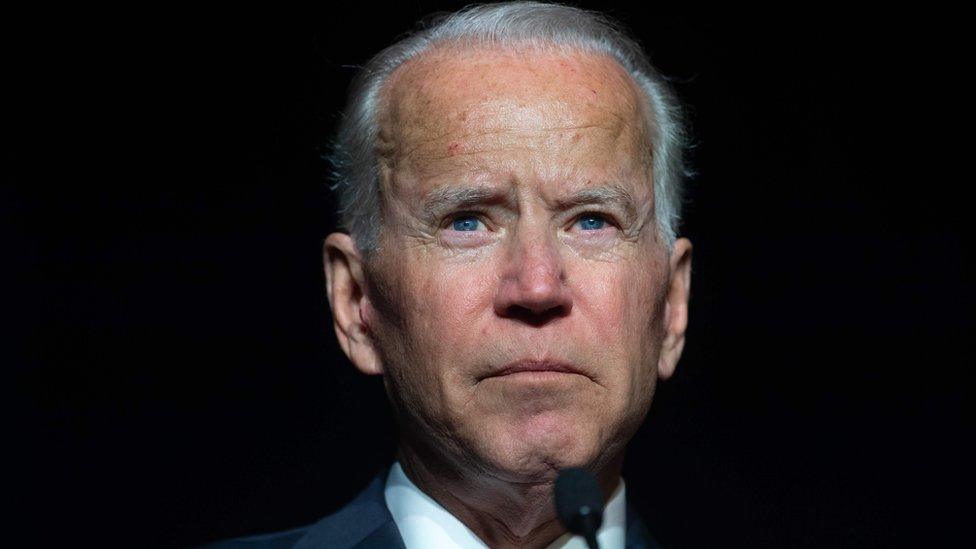
- Published18 March 2019
- Published3 April 2019
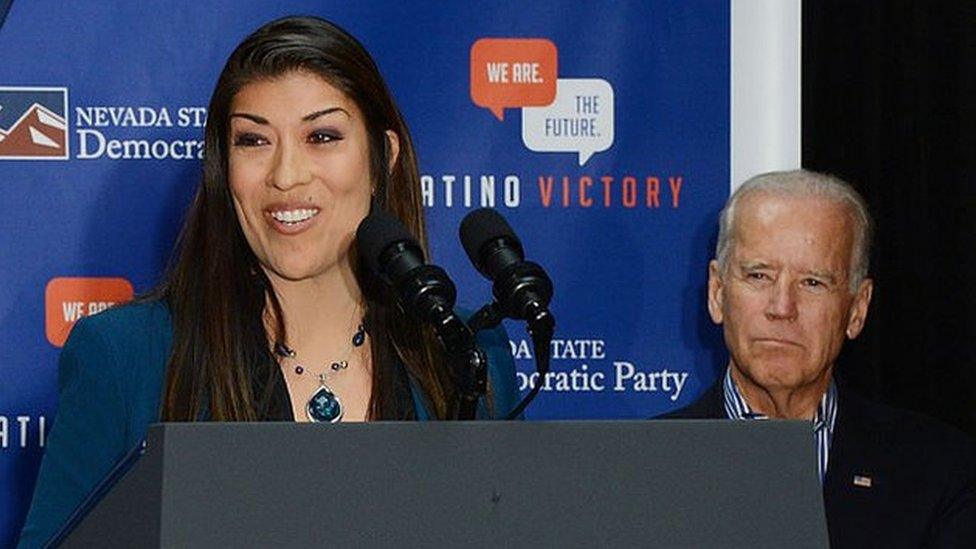
- Published9 April 2019
- Published1 March 2019
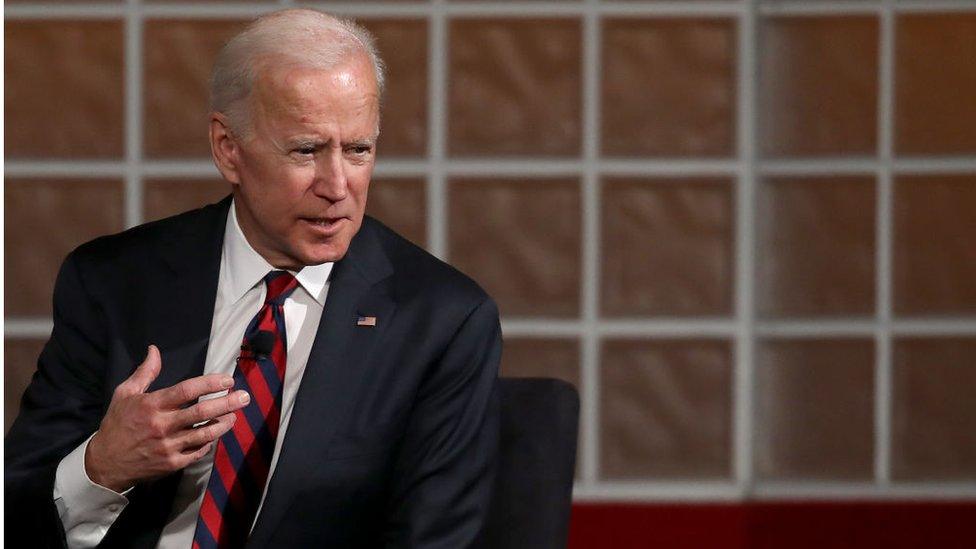
- Published12 March 2019
- Published20 February 2019